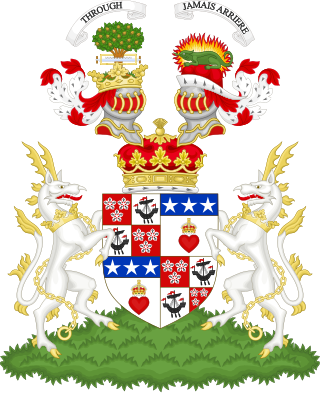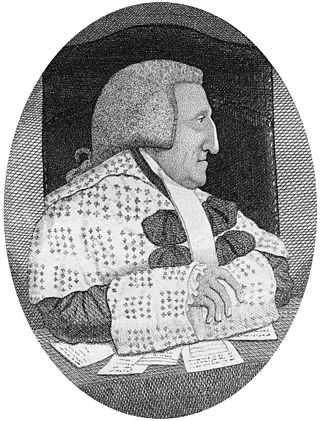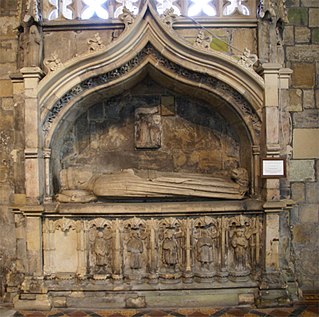
The London Corresponding Society (LCS) was a federation of local reading and debating clubs that in the decade following the French Revolution agitated for the democratic reform of the British Parliament. In contrast to other reform associations of the period, it drew largely upon working men and was itself organised on a formal democratic basis.

Dugald Stewart was a Scottish philosopher and mathematician. Today regarded as one of the most important figures of the later Scottish Enlightenment, he was renowned as a populariser of the work of Francis Hutcheson and of Adam Smith. Trained in mathematics, medicine and philosophy, his lectures at the University of Edinburgh were widely disseminated by his many influential students. In 1783 he was a joint founder of the Royal Society of Edinburgh. In most contemporary documents he is referred to as Prof Dougal Stewart.

Thomas Douglas, 5th Earl of Selkirk FRS FRSE was a Scottish peer. He was noteworthy as a Scottish philanthropist who sponsored immigrant settlements in Canada at the Red River Colony.

Duke of Hamilton is a title in the Peerage of Scotland, created in April 1643. It is the senior dukedom in that peerage, and as such its holder is the premier peer of Scotland, as well as being head of both the House of Hamilton and the House of Douglas. The title, the town of Hamilton in Lanarkshire, and many places around the world are named after members of the Hamilton family. The ducal family's surname, originally "Hamilton", is now "Douglas-Hamilton". Since 1711, the dukedom has been held together with the Dukedom of Brandon in the Peerage of Great Britain, and the dukes since that time have been styled Duke of Hamilton and Brandon, along with several other subsidiary titles.
The Society of the Friends of the People was an organisation in Great Britain that was focused on advocating for parliamentary reform. It was founded by the Whig Party in 1792.

Jeremiah Joyce (1763–1816) was an English Unitarian minister and writer. He achieved notoriety as one of the group of political activists arrested in May 1794.

William Creech FRSE was a Scottish publisher, printer, bookseller and politician. For 40 years Creech was the chief publisher in Edinburgh. He published the first Edinburgh edition of Robert Burns' poems, and Sir John Sinclair's influential "Statistical Accounts of Scotland". In publishing Creech often went under the pseudonym of Theophrastus.

Sir David Rae, Lord Eskgrove, 1st Baronet FRSE FSA (1724–1804) was a Scottish advocate and judge.

Clan Douglas is an ancient clan or noble house from the Scottish Lowlands.

Archibald Douglas, 5th Earl of Douglas was a Scottish nobleman and general during the Hundred Years' War.
St Mary's Isle Priory was a monastic house of Augustinian canons located on the Isle of Trail or St Mary's Isle in Galloway.

Dunbar James Douglas, 6th Earl of Selkirk FRS was a Scottish peer.

The 1794 Treason Trials, arranged by the administration of William Pitt, were intended to cripple the British radical movement of the 1790s. Over thirty radicals were arrested; three were tried for high treason: Thomas Hardy, John Horne Tooke and John Thelwall. In a repudiation of the government's policies, they were acquitted by three separate juries in November 1794 to public rejoicing. The treason trials were an extension of the sedition trials of 1792 and 1793 against parliamentary reformers in both England and Scotland.

The Canongate Kirkyard stands around Canongate Kirk on the Royal Mile in Edinburgh, Scotland. The churchyard was used for burials from the late 1680s until the mid-20th century.
Dunbar Hamilton Douglas, 4th Earl of Selkirk FRSE was a Scottish peer.

Helen D'Arcy Stewart was Scottish poet and a noted Edinburgh society hostess of the late 18th and early 19th century, as wife to Dugald Stewart, an influential Scottish philosopher and mathematician best known for popularizing the Scottish Enlightenment.
Felix Vaughan was an English barrister, known for his role as defence counsel in the treason trials of the 1790s.
John Rotherham or Rotheram (c.1750–1804) was an 18th-century British physician and scientist.
Lord Basil Hamilton was a Scottish aristocrat who drowned trying to save his servant.

Charles Douglas, 2nd Earl of Selkirk, was a Scottish aristocrat and courtier.














